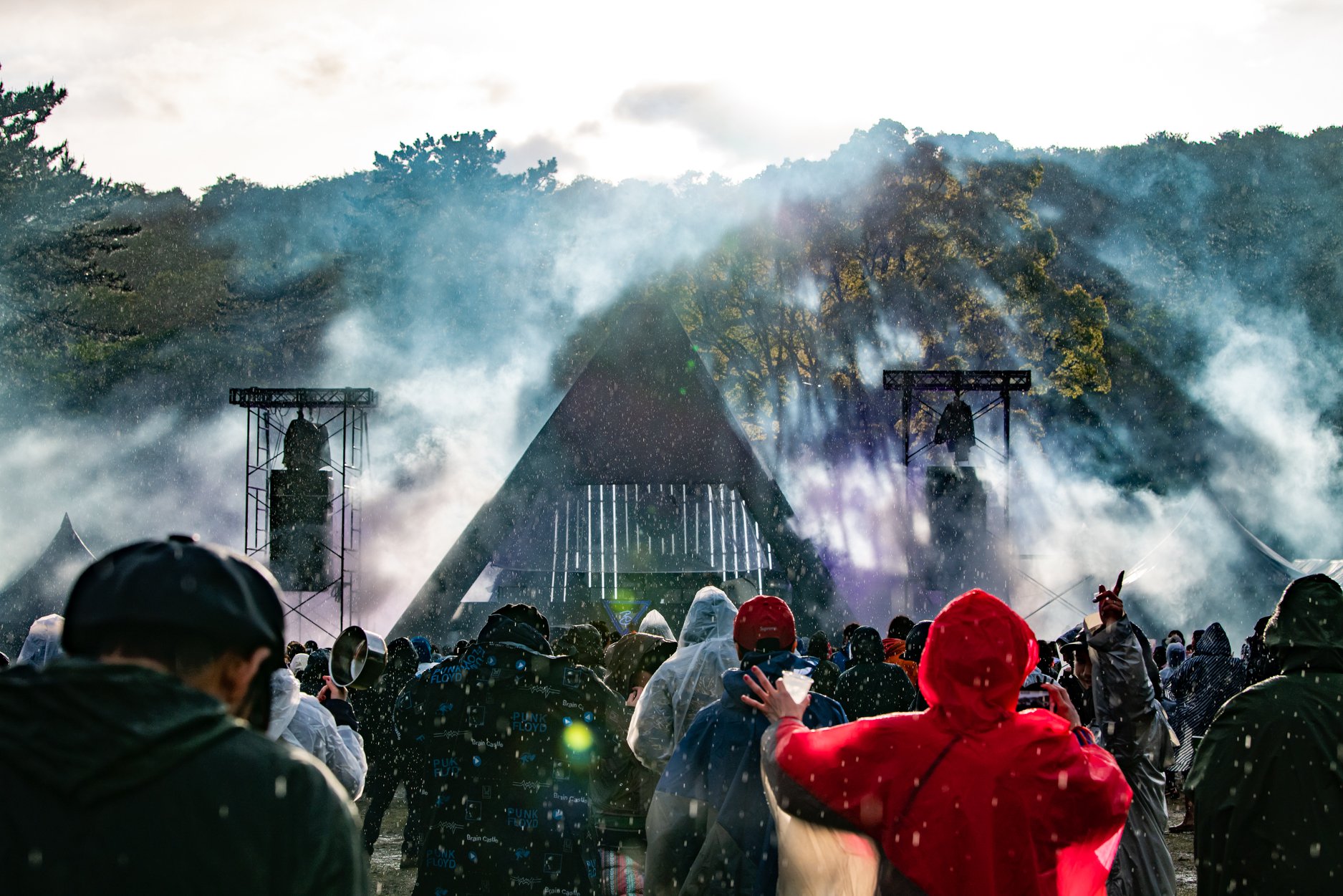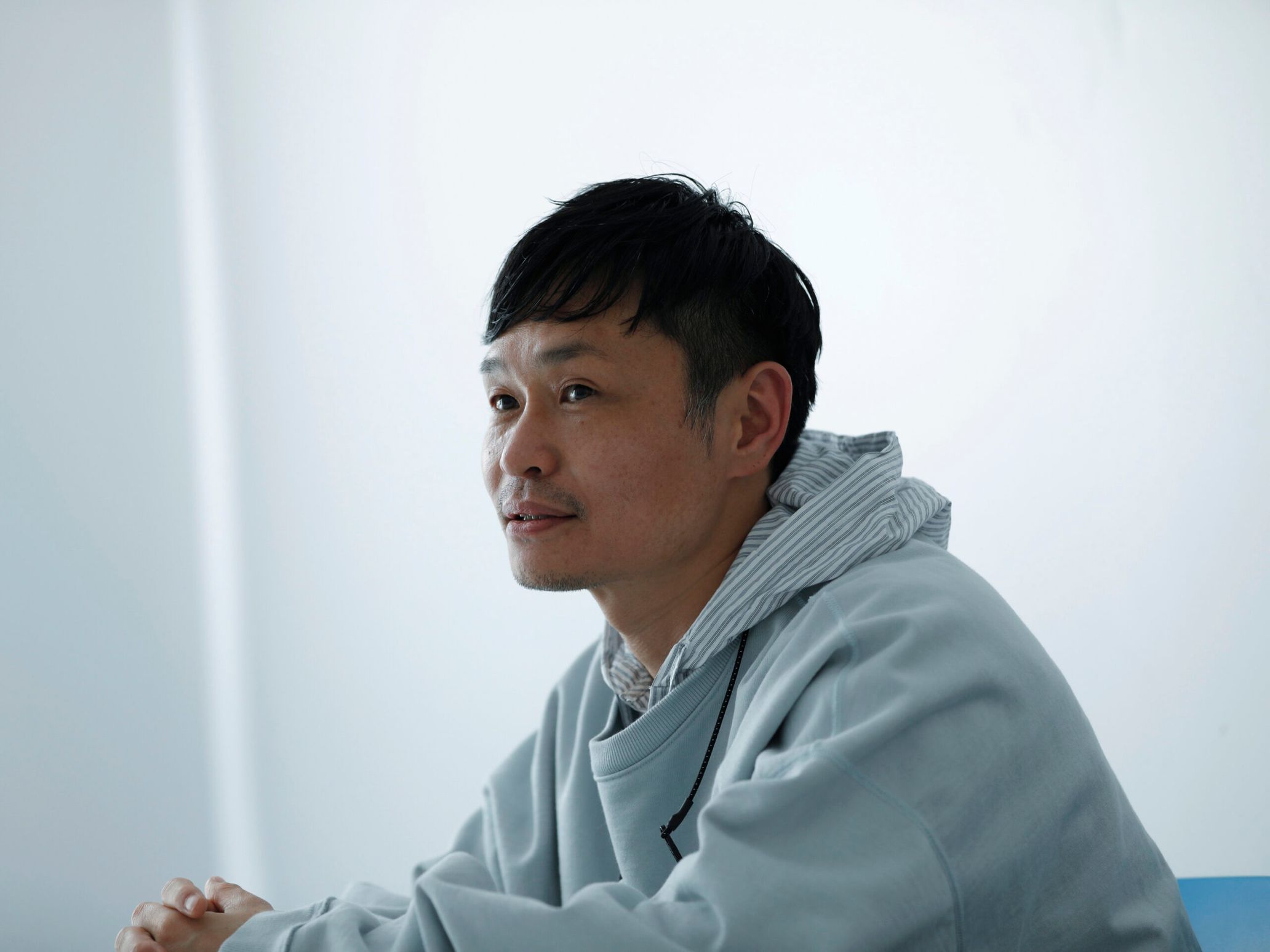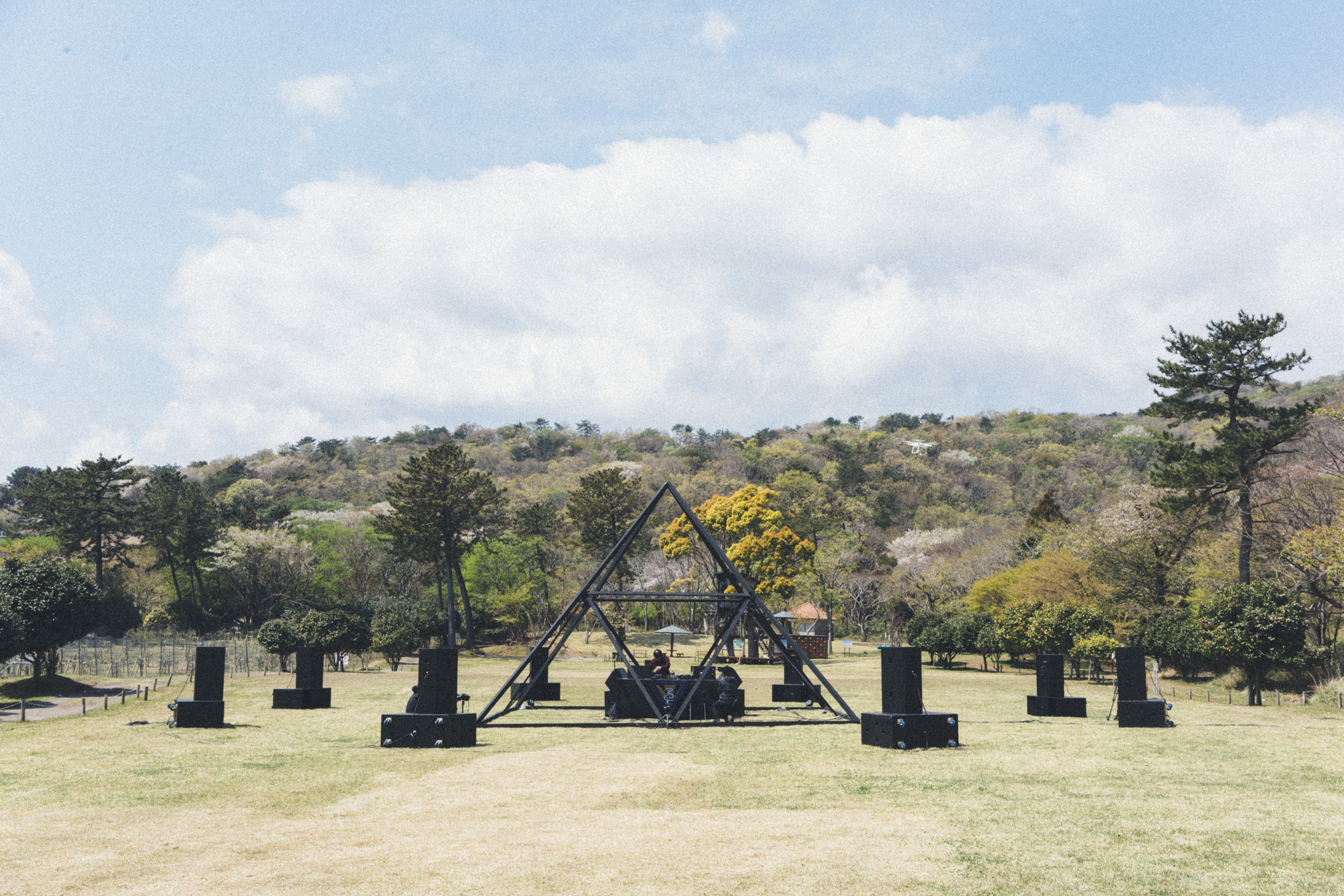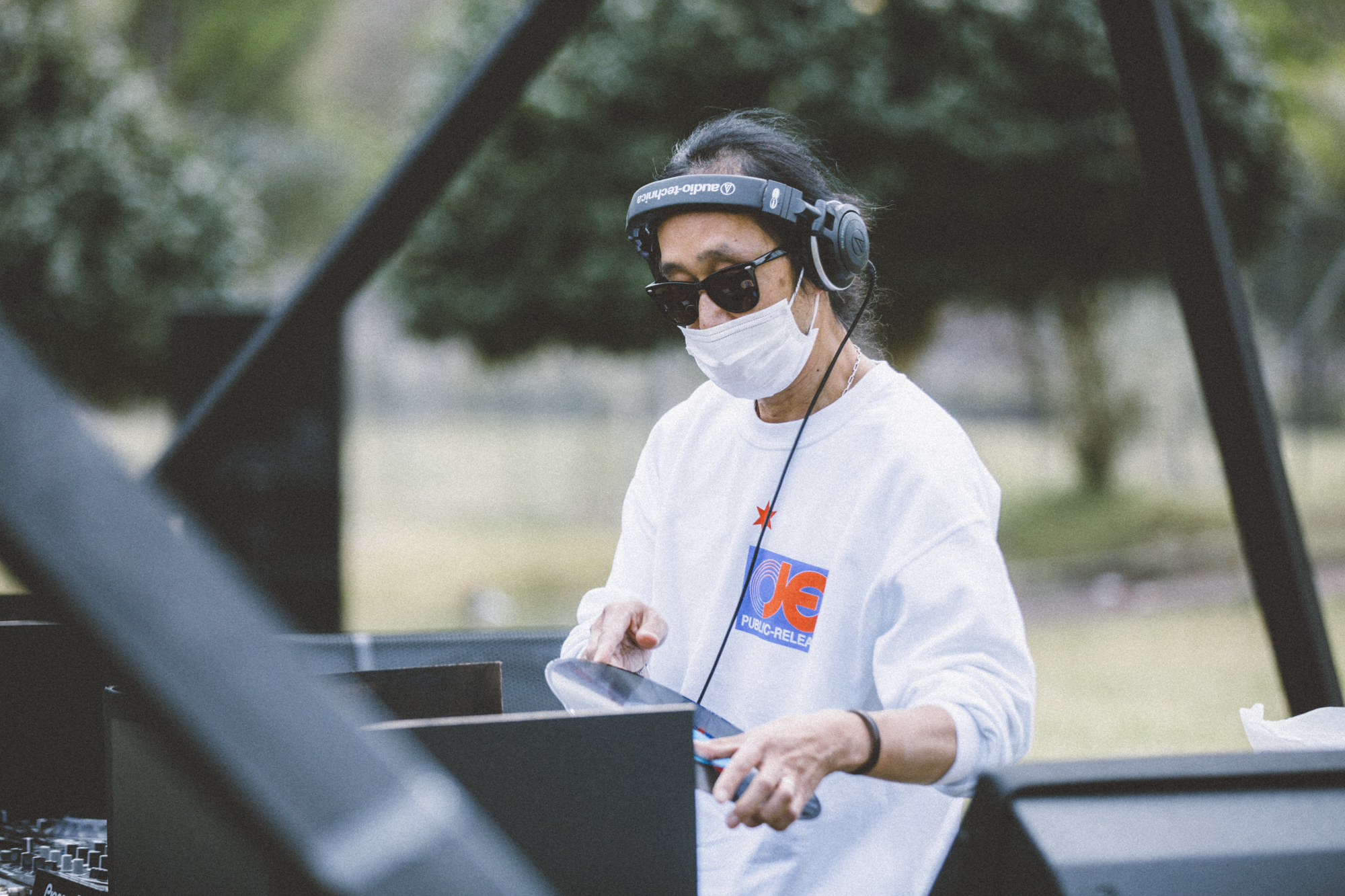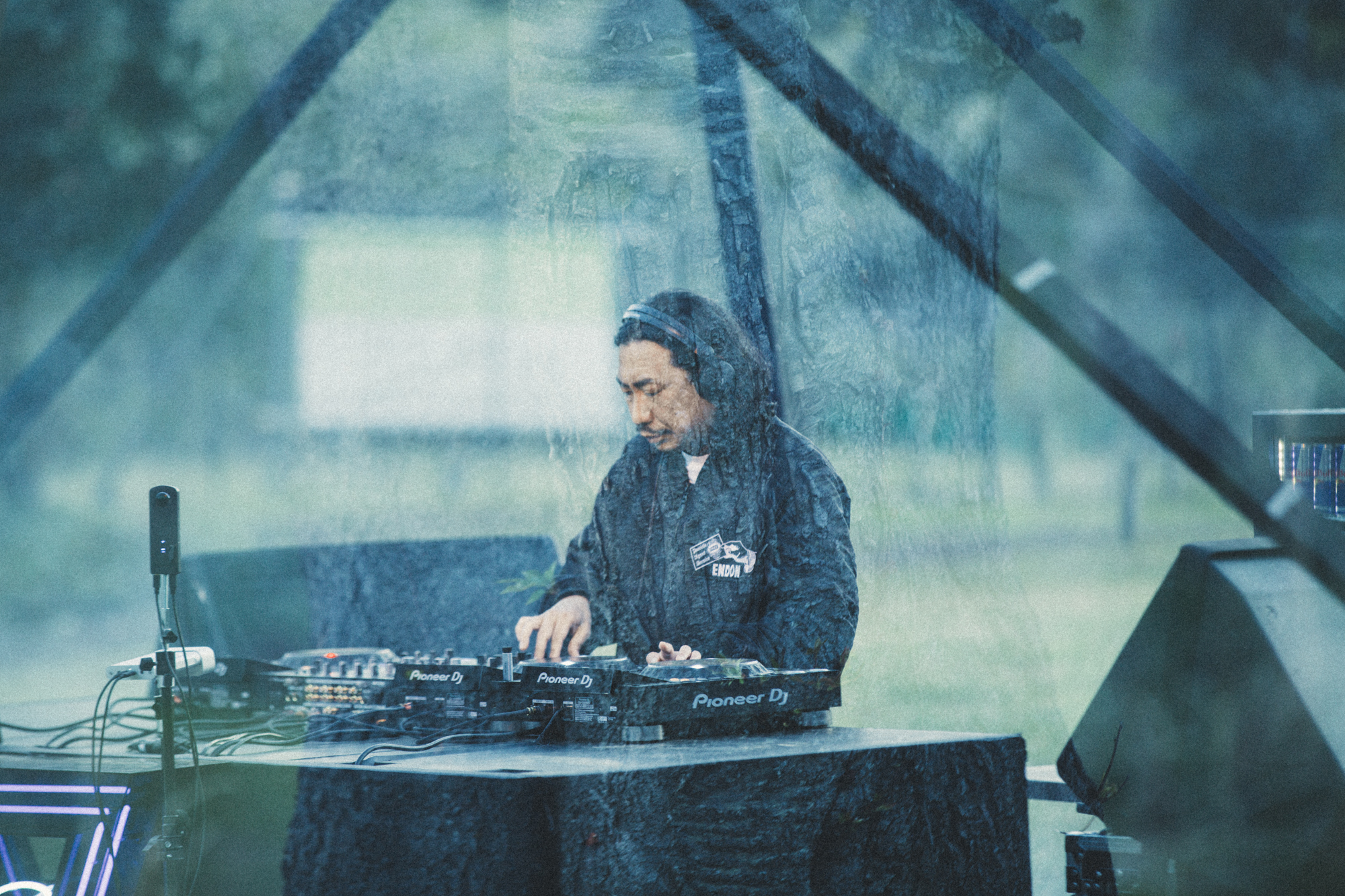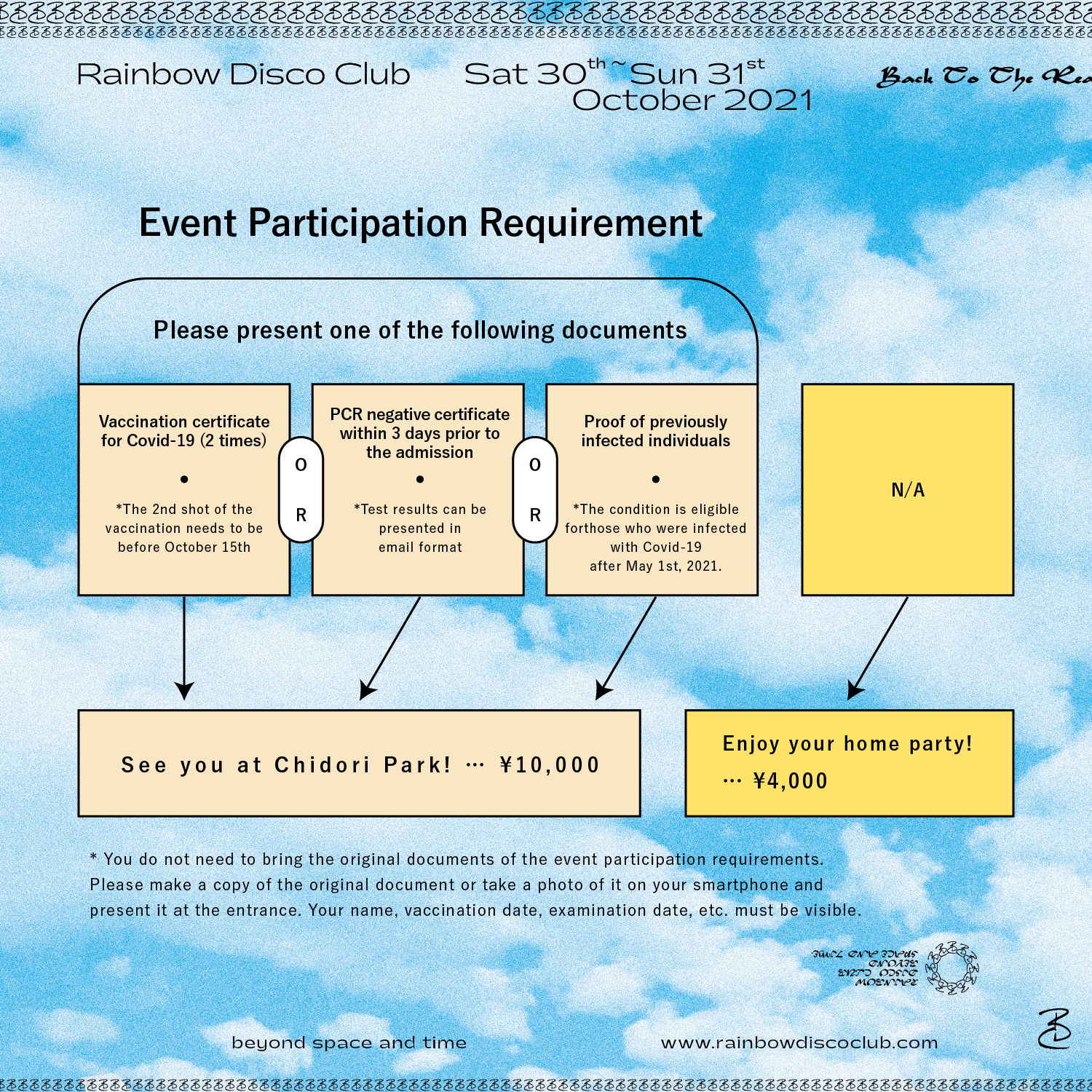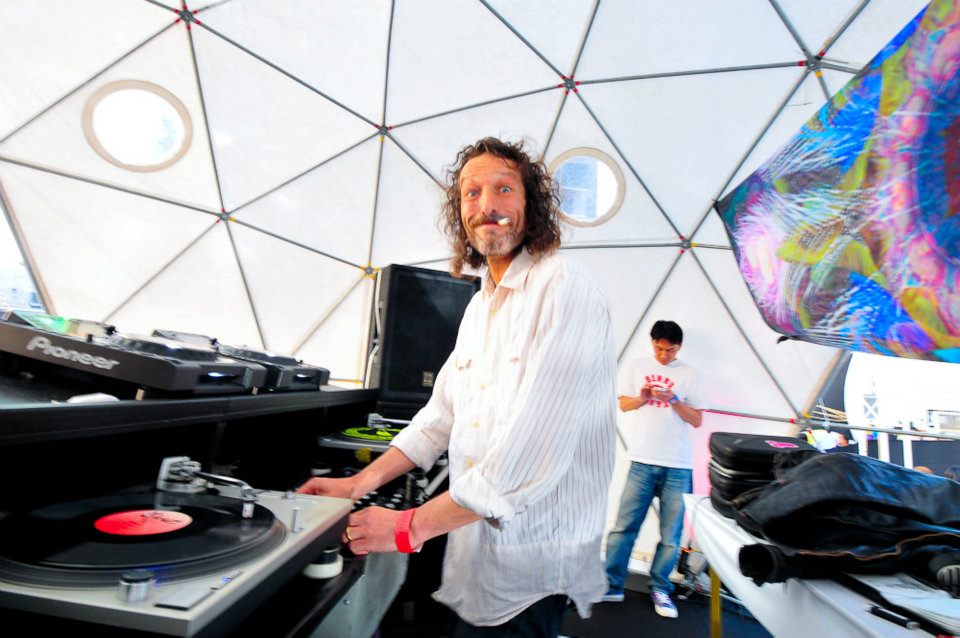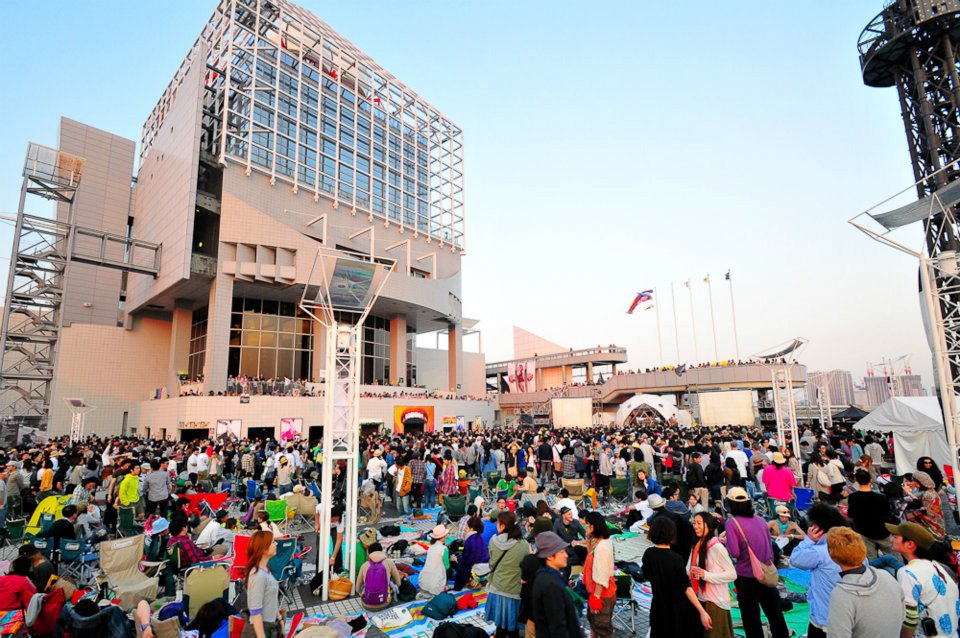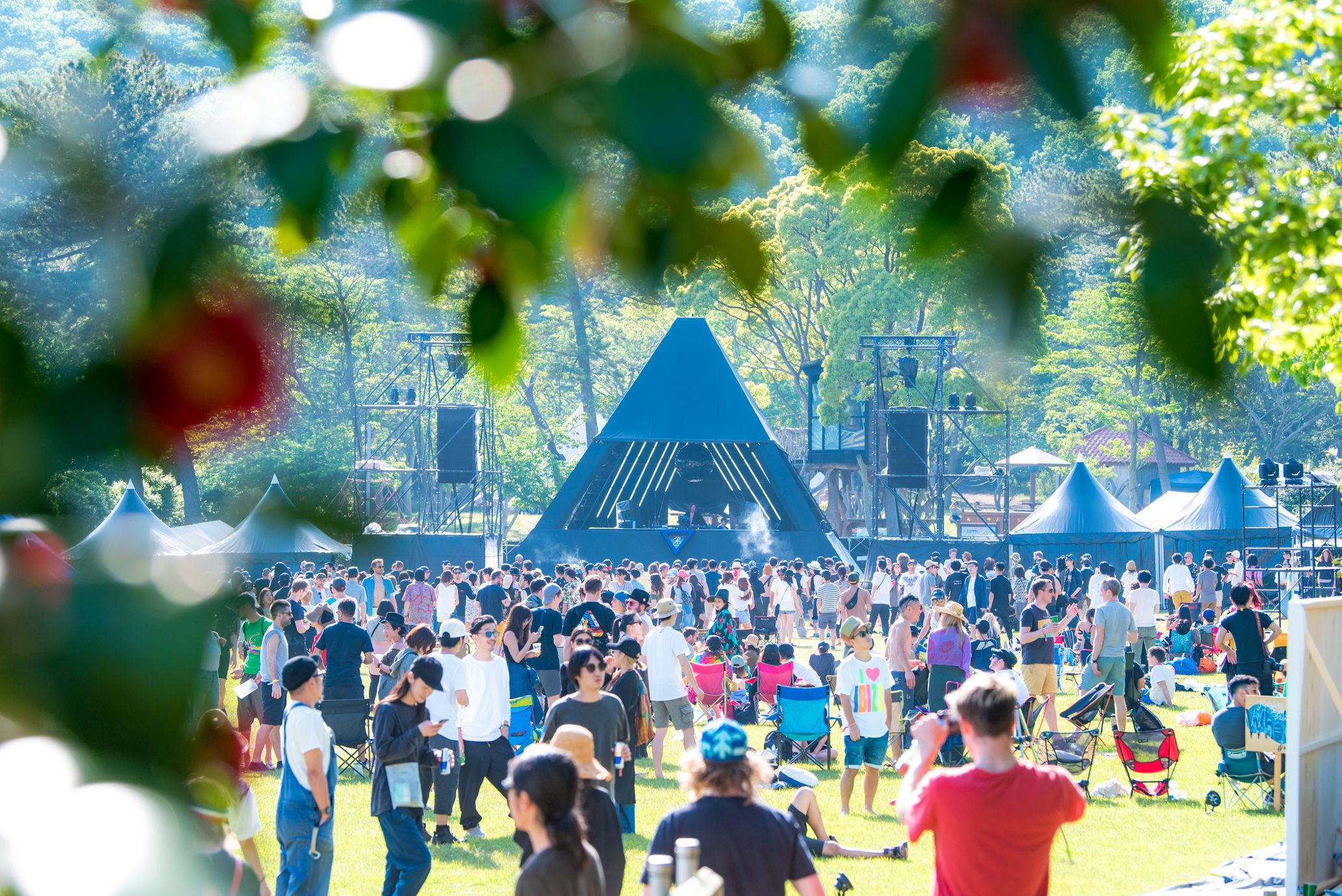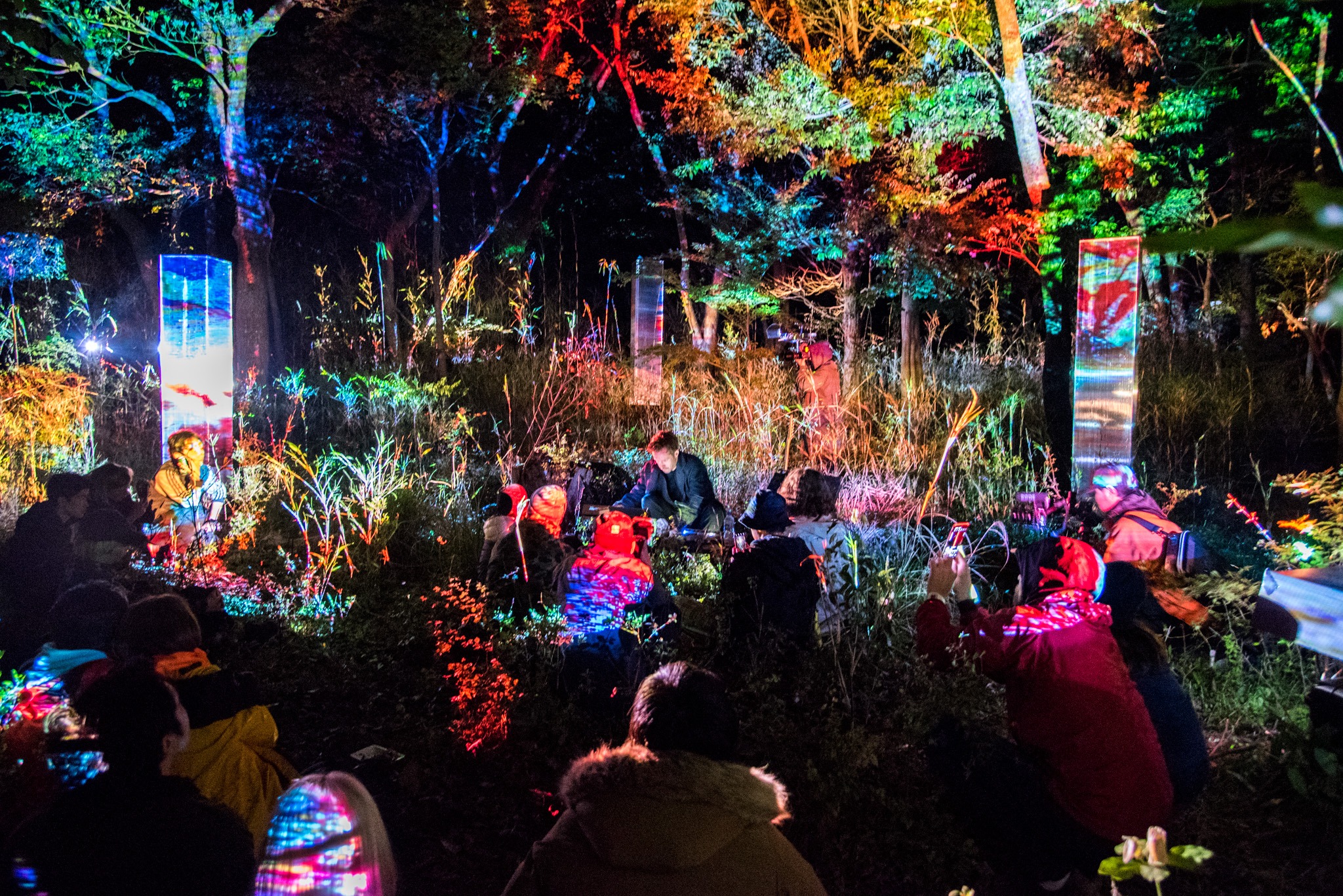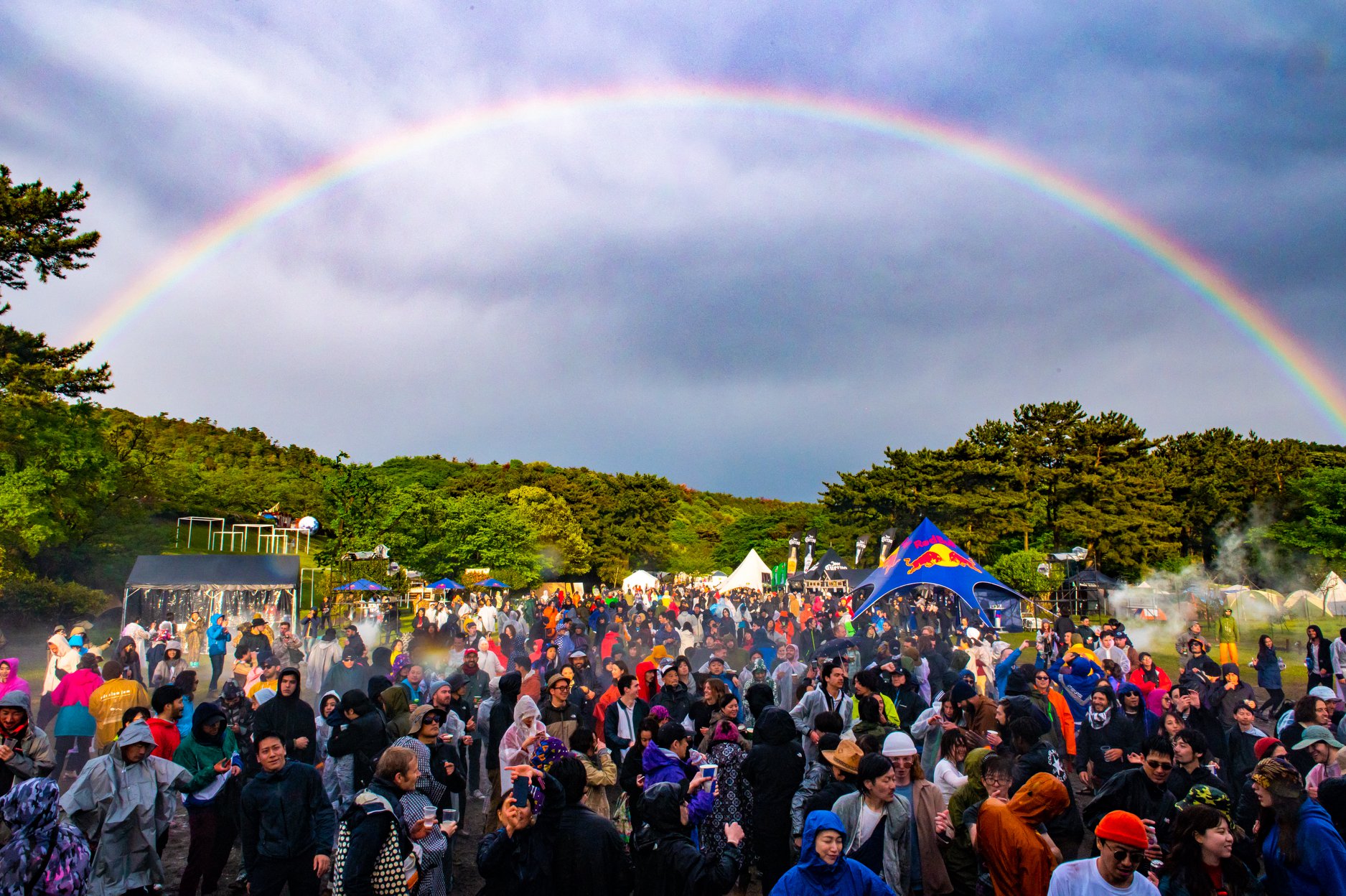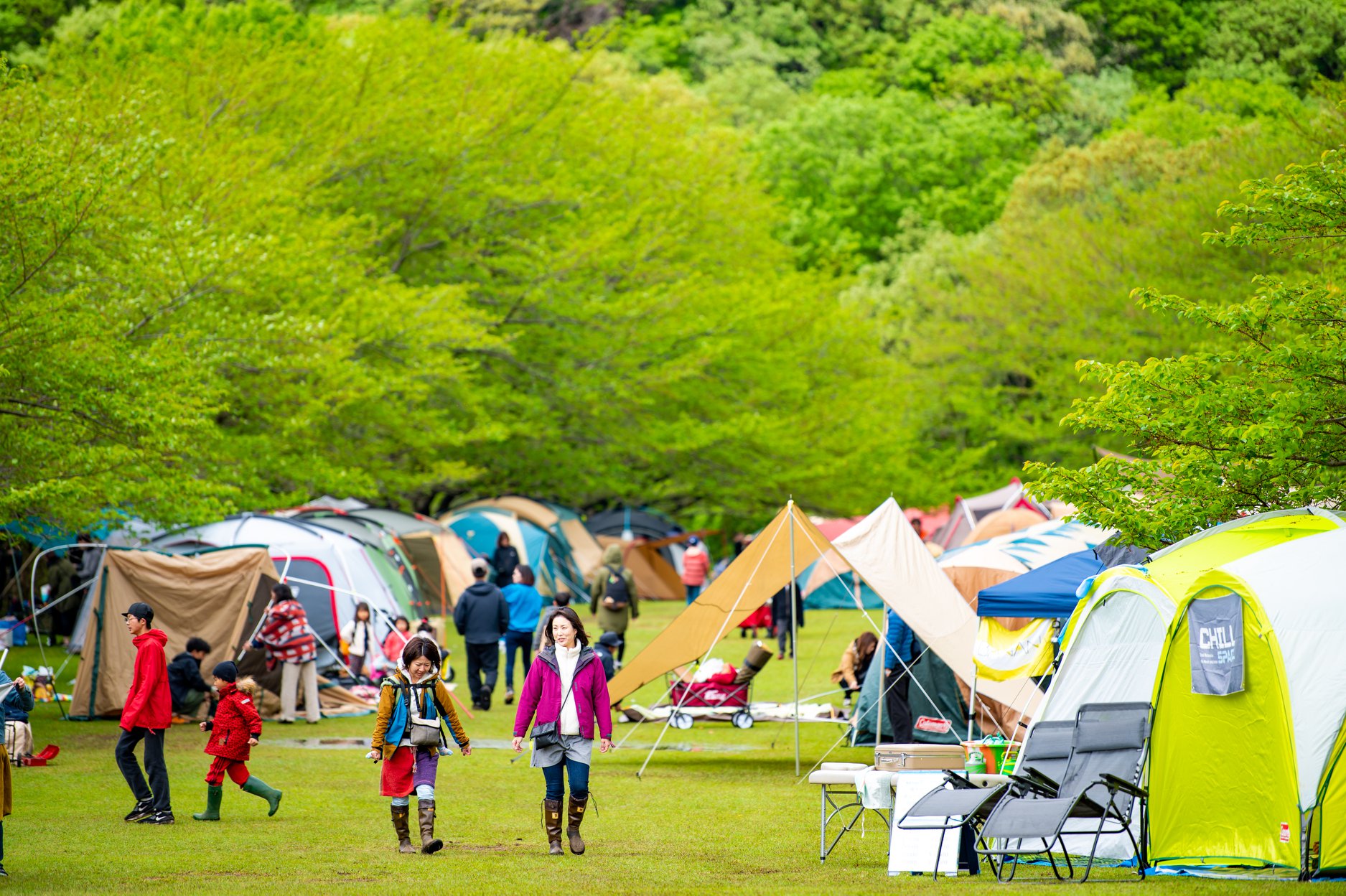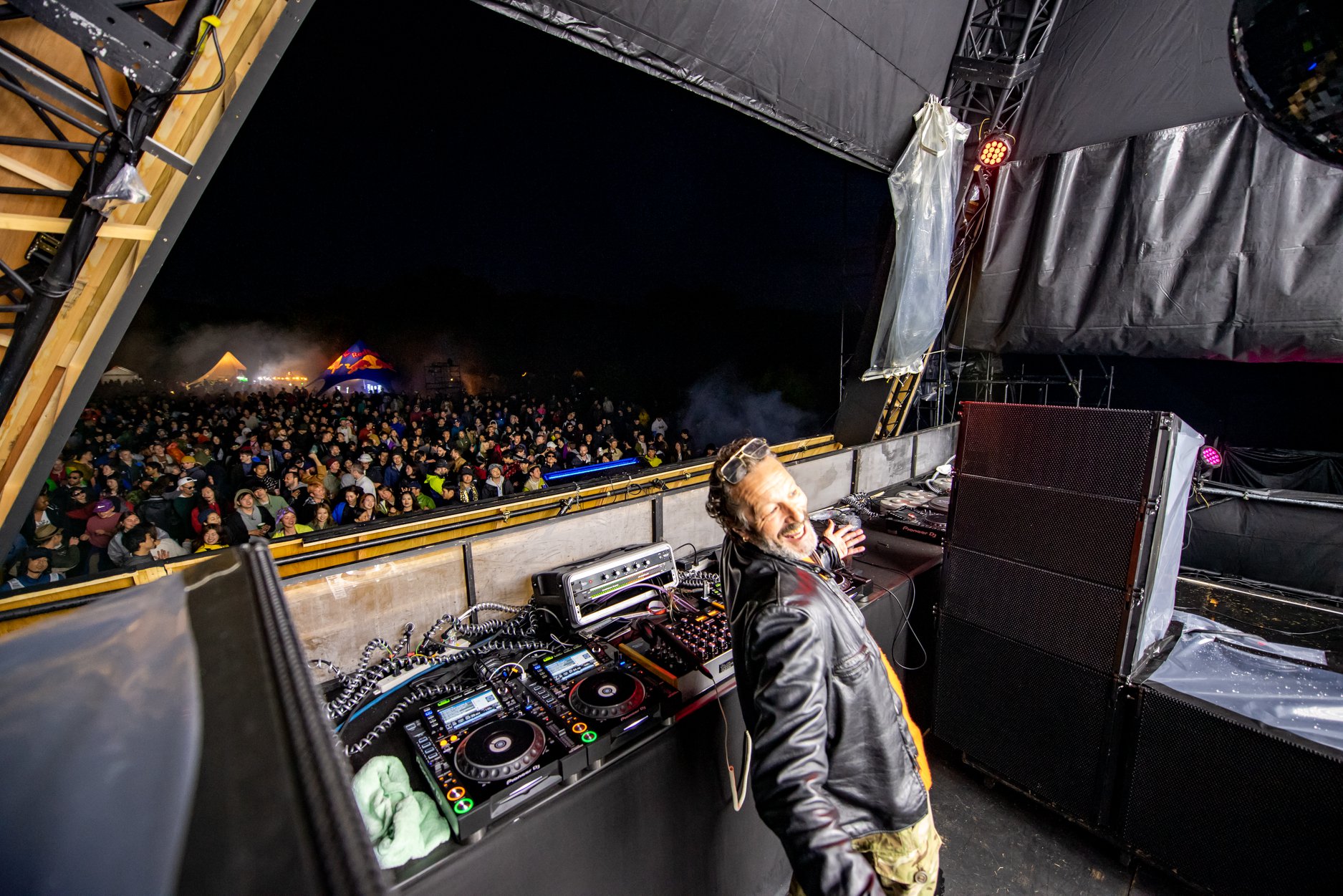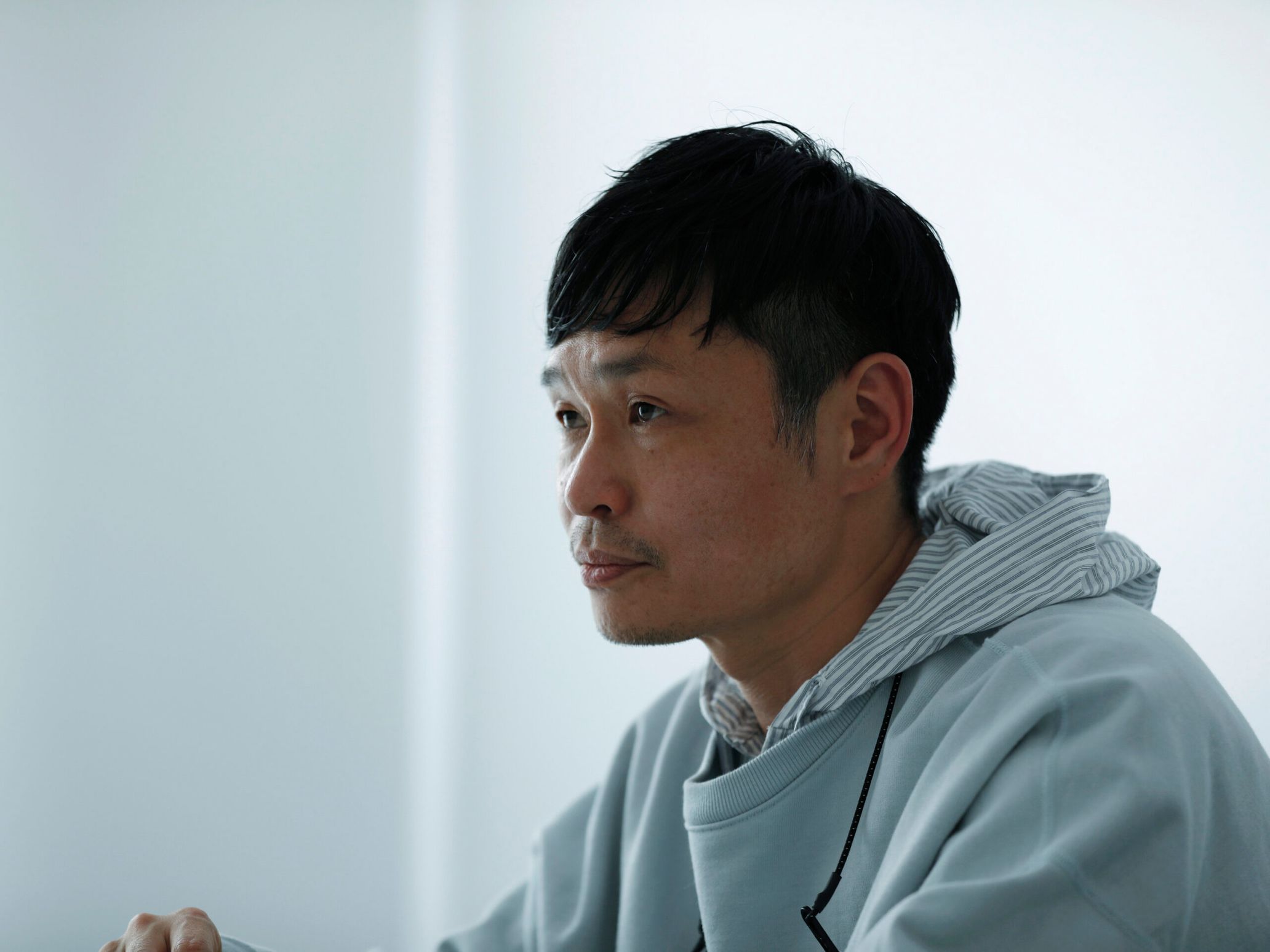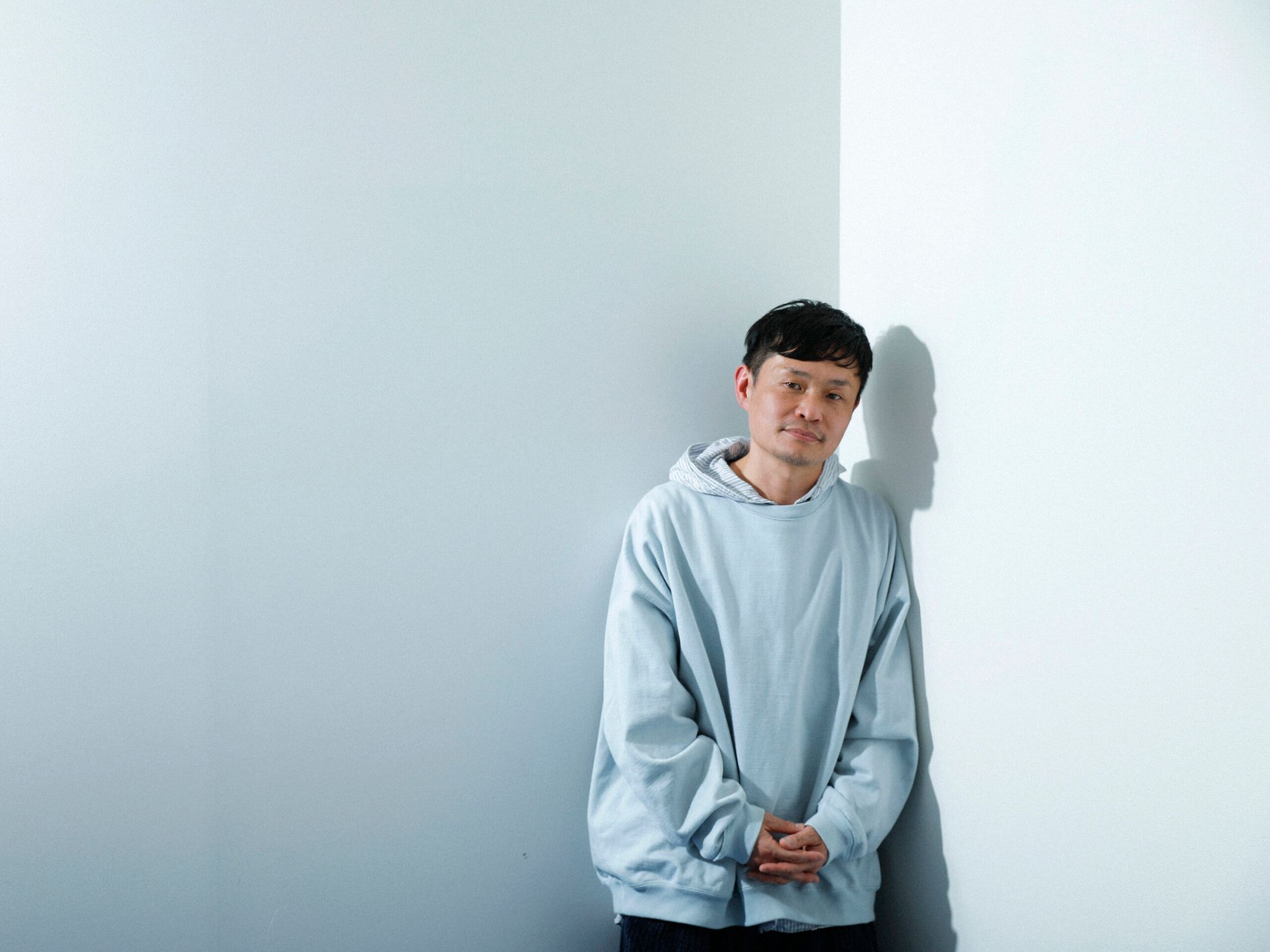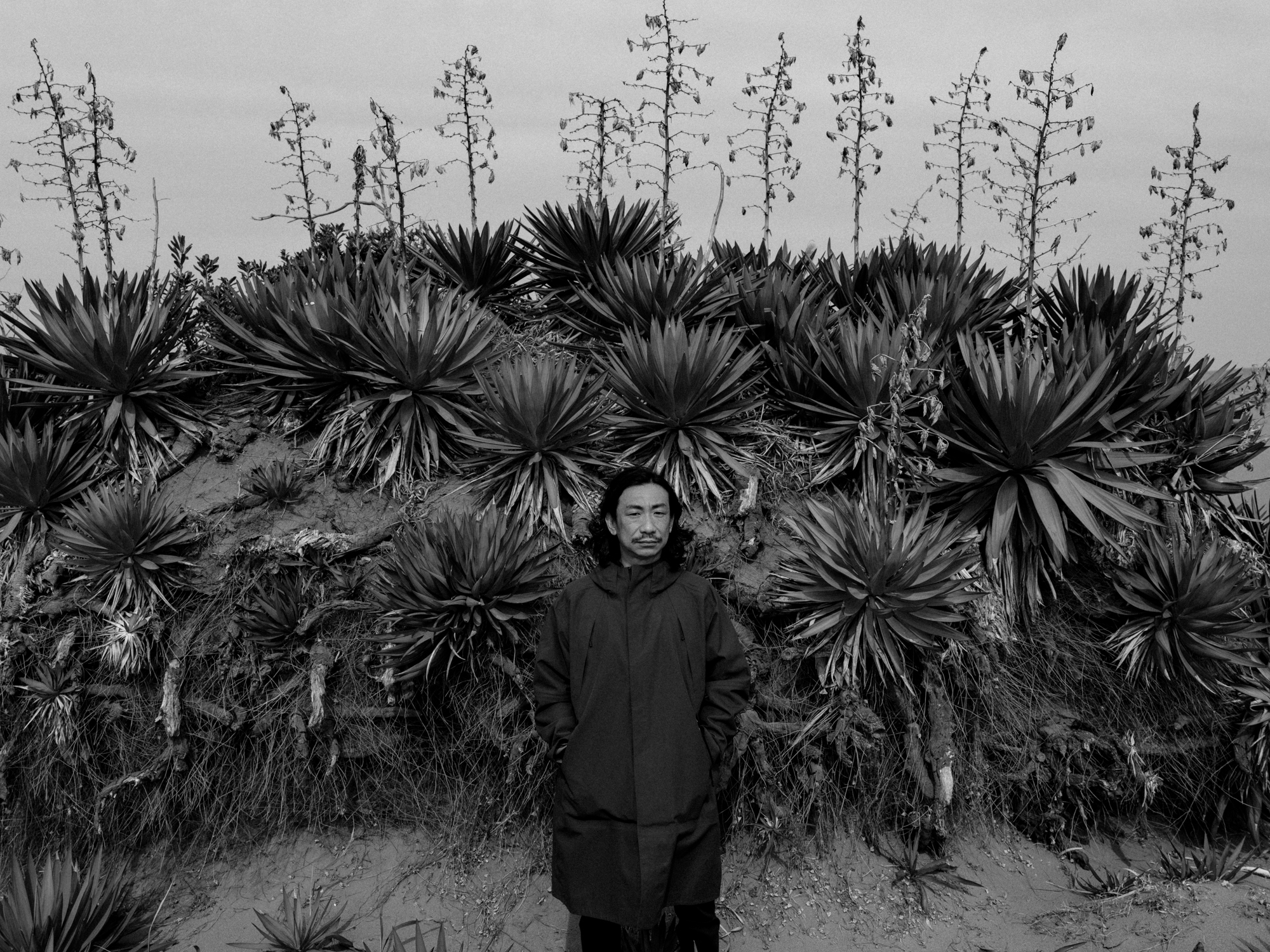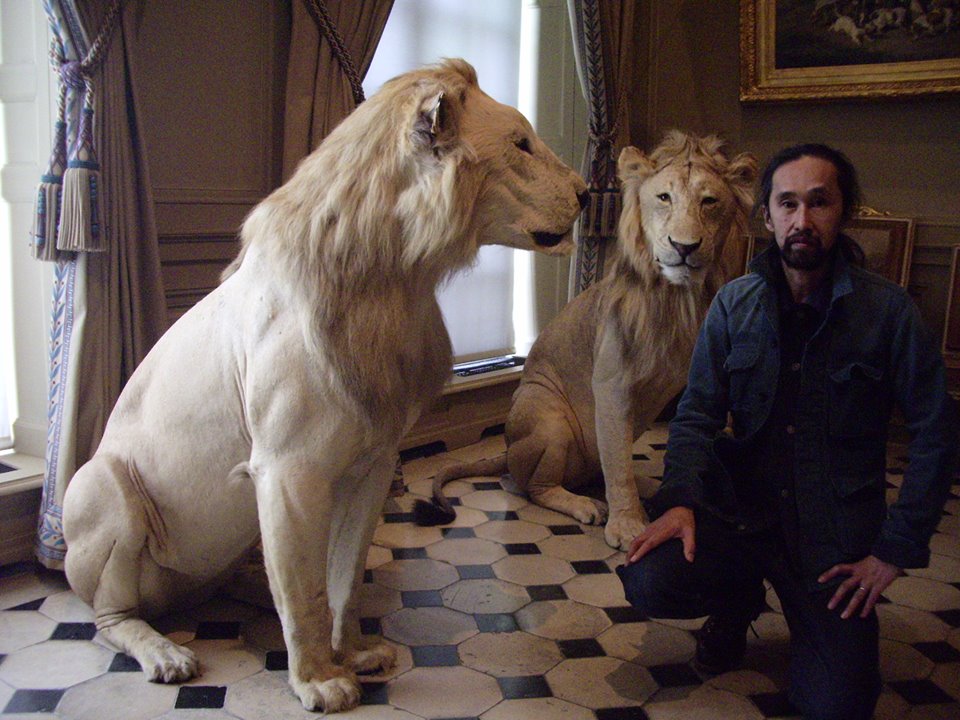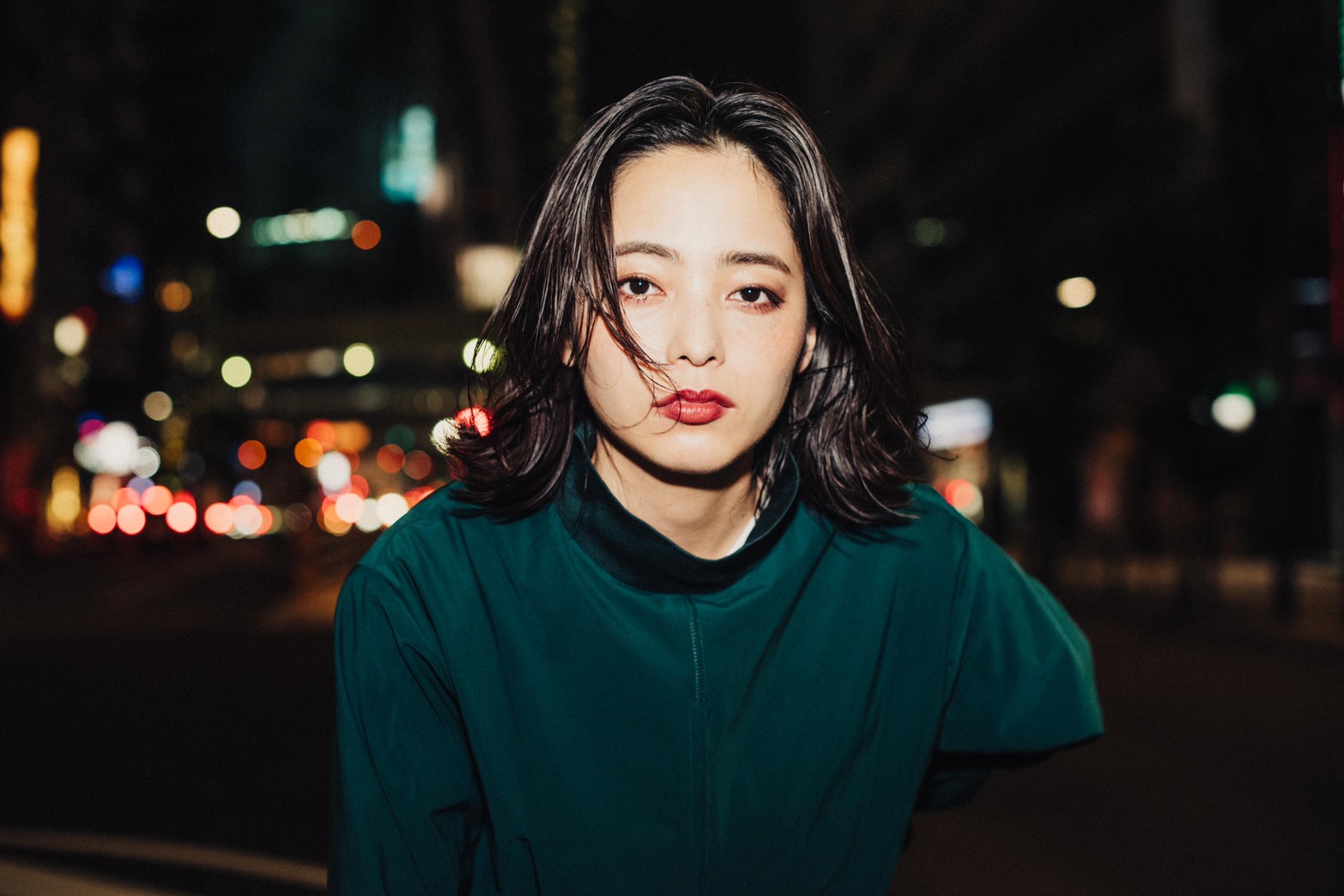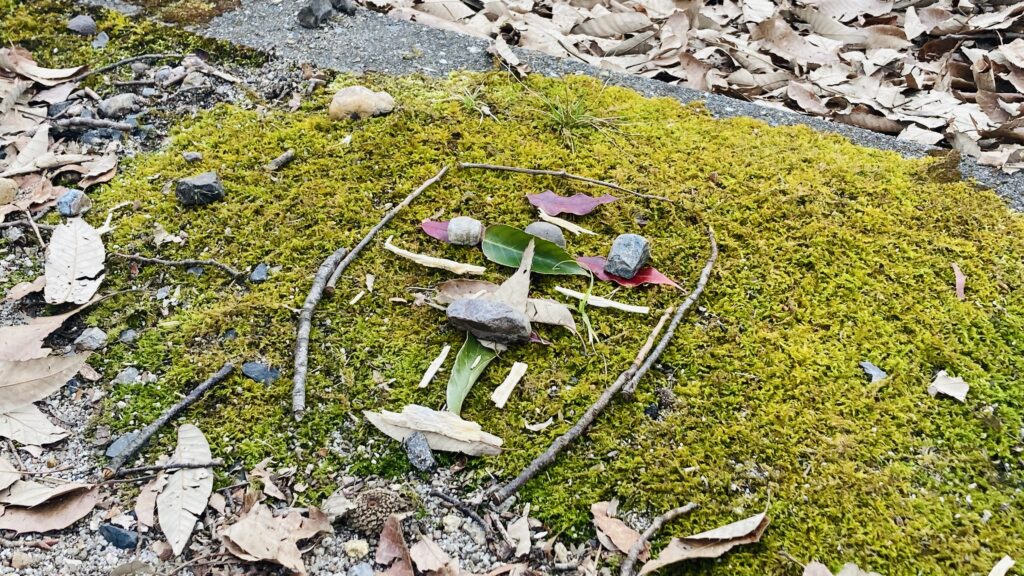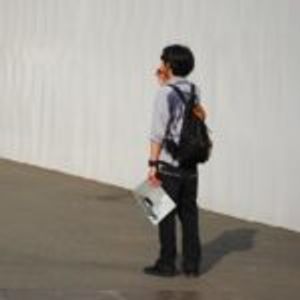Rainbow Disco Club (RDC) is an outdoor music event that has garnered the support of dance music lovers. Before the coronavirus, it was held in Shizuoka Prefecture’s Higashi-Izu, and it has garnered support from Japan and abroad as an incredible festival where people can enjoy quality music while enveloped by nature. However, since the coronavirus crisis, the in-person event has unfortunately been postponed. Now, the festival will be held over two days as “RDC ‘Back To The Real’” on October 30th and 31st.
What should a music festival look like in these times? What ideas are most important to Rainbow Disco Club? We ask organizer Masahiro Tsuchiya.
RDC wants to go back to the basics and send out a simple message
――This year’s RDC will be held at a different location, but the title is “Back To The Real”—in other words, going back to the basics. Could you tell us about the story behind this?
Masahiro Tsuchiya (from hereunder, Tsuchiya): From 2020 and until this summer, music festivals were canceled across the board, and I think many people had no place to go. During this time, I had the opportunity to go to closed parties like small, invite-only events. Those spaces were overflowing with energy, and it reminded me of the moment I became obsessed with music. In a way, when the music scene came to a halt due to the coronavirus, it became an opportunity to reflect on why I was interested in this music scene and had become so absorbed in it.
When I was talking about this to Carlos Gibbs, one of the founding members who I started RDC with, we realized that this year’s RDC title should be something really simple. Although we’ve seen cases like the recent Supersonic, it’s still hard to invite overseas artists, and the situation is changing by the minute. But we just naturally felt like we wanted to try going back to the basics, so we decided on “Back To The Real.”
――Last year, you canceled the physical event and replaced it with a livestreaming event, right?
Tsuchiya: Until that, I hadn’t ever thought about canceling for any reason other than the weather, so I was in shock, I guess. Now, I can think of our shift to livestreaming as a success, but at the time, it was quite tough mentally. In truth, I felt like I had to take the plunge into livestream out of necessity, but I had a lot of thoughts after doing it. Of course, since it was a livestream, there was no audience in front of us, so we had to worry about who to aim the event at and how to communicate.
――Did any discoveries come out of the livestream?
Tsuchiya: I felt that the livestreaming format had a lot of potential, but it was also difficult in terms of sound. Each viewer is in a different environment, right? Some people might be watching on their smartphones, while others might be using high-end audio equipment. So it was tough to adjust the sound to the target audience. The positive side of this was that it was very encouraging to see how many people had tuned in, even though we didn’t know who they were. I’m sure there were people who had wanted to come but couldn’t for various reasons, so it was great that we could reach them. Last year, we didn’t have much time to prepare for the event, and there were a lot of things we couldn’t make happen. But I feel that this is an era for doing both real and virtual things, so I’d like to further strengthen [our ability]. In the end, regardless of whether the event is real or virtual, every person can enjoy the music. The feeling that spreads by sharing that [joy] with others is a tangible thing that I was able to feel, even through the livestream. At the same time, I realized that this feeling is an amazing aspect of the dance floor. We have to consciously allow that feeling to come up at our events without thinking of the boundaries between real and virtual.
――So after two postponements this year, could you tell us how you ended up holding an actual event with an audience as well as a pay per view livestream?
Tsuchiya: The state of emergency was lifted in October, so now we’re basically able to hold events as long as they meet the requirements. Since 2020, we’ve repeatedly planned the event and then cancelled or postponed. So despite the difficult emotions, we’ve finally made it to this point.
This tough situation has continued for a long time. So when we’re finally able to hold the event and see a happy audience, I think that will be when the efforts of those involved will be rewarded. So I feel really strongly about holding the event by all means possible.
Plus, when I think about all the many RDC fans who have been waiting for the event without getting ticket refunds, the performers who have been graceful enough to accept the repeated schedule changes without a single complaint, and the staff and friends who have been cooperating with us even though we’ve repeatedly had to start over—not holding the event is not even an option.
I’ve actually had many people reach out to me about holding the event, and that’s been a source of encouragement. Because there was even a time when I thought people might forget us. (laughs)
However, because we added strict requirements for attendees, we thought there would be people who didn’t agree with the requirements. So we decided to stream the event—although it costs money—for those people to enjoy the event without coming to the venue. I think if we do that, people with different ways of thinking can enjoy RDC in their own way. People who are able can come to the venue, and people who are a bit worried about going to the venue can watch the livestream. And for those who can’t get on board with either of those options, we’ll refund their tickets. I think this is the best we can do in our current situation.
――This time, the event will be held with admission requirements such as proof of vaccination or negative PCR test results. Could you tell us a bit more about that?
Tsuchiya: People who meet one of the following three admission requirements will be allowed to attend. Although the number of infections is on the decline nationwide, we’ve set these requirements so people can feel as safe as possible in the venue.
I think there will be a lot of different opinions about this. It’s very hard to judge what the best possible solution is, but we think this is the best we can do at this time.
*Requirements for attending RDC “Back To The Real”
① Proof of full vaccination (2 shots)
(Please present a vaccination certificate or a vaccination ticket/record showing completion of your second shot. The second vaccination must have taken place before October 15th.)
② Negative PCR test result within 72 hours prior to admission
(Please schedule your own PCR test and bring a certificate or email showing that you have tested negative on a PCR test within 72 hours prior to admission. The PCR test results must show your name and the test date.)
③ Proof of previous coronavirus infection
(Please bring proof of medical treatment issued by the local government, a notice of work restriction, or a letter recommending hospitalization. Only those who were infected with COVID-19 after May 1st, 2021 are eligible.)
A festival created not just by the organizers, but with the attendees
――RDC will be held at Chidori Park, a waterfront park in Kawasaki. In the past, the event has been held at Shizuoka Prefecture’s Higashi-Izu and Harumi Wharf Park. Why did you choose this location [at Chidori Park]?
Tsuchiya: Chidori Park has been used as a venue for other music events in the past, and it’s a place where high-quality parties have been held. So, it has that history, and it’s a place where people who really love music have gathered. It’s where DJ NOBU’s party, FUTURE TERROR, was held. I’ve helped out with that event before, and since then, I’ve felt like it was a really great place. So I negotiated with the park while consulting with people who had organized events there before, and I received permission to hold the event.
――So you felt that as a location, it suited RDC’s vibe?
Tsuchiya: Right. Another reason is that it’s easily accessible from Tokyo. I think Izu is difficult to get to for some people, especially many young people, so I thought this proximity [to Tokyo] would make it easier for those people to come too. There was that, and then I felt that at Chidori Park, we could challenge ourselves to do things we’d never done before. In terms of the vibe, the space is opposite to Shizuoka’s Higashi-Izu, and the surrounding area is industrial with a rough atmosphere—but I like that, too.
Also, since we’re holding the event under these circumstances, I wanted to indicate that this RDC would be a bit different than past RDCs. A lot of experiences will be a first, so I’m personally really looking forward to it. And at the same time, I want to challenge myself to flawlessly prevent the spread of infection.
――In the past, RDC also had a camping festival aspect that families could participate in. Will children be allowed in this time as well?
Tsuchiya: Children will be allowed in, but as I mentioned earlier, I’m sure that it will be a bit different from before. The venue isn’t as big as Izu, and there’s no camping area. And most of all, it’ll be held in the middle of summer, so we’d like to ask guardians to take sufficient consideration of this.
I think as long as we take proper measures for the coronavirus, it’ll be an environment people can fully enjoy. However, I’d like attendees to make the final call about whether to attend. We’ll present the attendance requirements and precautions beforehand, but on top of that, I want to leave it up to the judgment of each attendee. This may be seen as selfish thinking by the organizers, but I’d very happy if having an event under these circumstances provides an opportunity for attendees to think about how they want to handle music festivals and events.
――If you’re going to hold an event under these circumstances, it’s important to have a mutual understanding.
Tsuchiya: That’s right. If we were allowed to, I’d want people to freely enjoy the music without thinking of anything. But before people come, I want them to first understand that this is an event being held with these circumstances in mind. There’s no way the event could work with us alone, and no matter how much the organizers prepare, there’s still a limit to that. So ultimately, I want to leave it up to each attendee. On top of that, we want to welcome the people who come with the utmost gratitude and care.
“I want to be able to share new things that come out of Japan with people around the world”
――How did you go about booking artists for this year’s event?
Tsuchiya: First, our ears and intuition are the basis [of our selection], but this year, the venue was a big factor. DK SOUND (the now legendary industrial rave party) was also held in Kawasaki, although at a different venue, and I’ve always really admired it and wanted to go someday. With that in mind, I made an offer to the Traks Boys, who are residents at DK Sound. Also, these twins named Satoshi&Makoto, who make songs with only a Casio synthesizer called the CZ-5000 (Vintage equipment released in 1985), are performing for the first time at RDC. Their work from the 1980s was reissued several years ago and it was really great, so I really wanted them to play. I managed to find them and make them an offer, and so on. Personal feelings play a big role in the booking as well. We also asked artists who were proactively working, even during the coronavirus crisis, to perform. For example, Yoshinori Hayashi, who is a regular at RDC, released an album this year. And ELLI ARAKAWA&FRANKIE$ have been doing regular livestreams, even if they can’t perform live. Precisely because of these circumstances, I wanted to book people who are actively working on new ideas.
――I see. Many of the artists are making their RDC debut, right?
Tsuchiya: Yeah, like MAYUDEPTH and Shokuhin Matsuri aka Foodman. In terms of playing at the actual venue, it’ll also be a first for CYK and Licaxxx. I think all the artists who seem close, but frequent slightly different areas or have their own parties, are participating this time.
――When I think about the nature of RDC, I think of it as a festival that transmits culture from Japan to the world. Could you tell us about the ideas that lie at the core of RDC?
Tsuchiya: This response might be a bit off-topic, but I think that we in Japan must be more proactive in welcoming the overseas scene, and at the same time, we also need to go overseas. We’ve been organizing RDC with the desire to facilitate that kind of communication, but since the coronavirus crisis, performers’ options have been narrowed down to domestic venues, and I feel very stressed about that situation. I don’t mean that Japan is at fault, but until now, we haven’t been in a situation where we couldn’t invite foreign artists, right?
――We didn’t think a day would come where we couldn’t invite foreign artists.
Tsuchiya: Considering our current situation, where things we took for granted were cut off, I want to be able to share new things that come out of Japan with people around the world, and I want to be more welcoming to the world than ever before. Especially for us, we’re involved in dance music, which has a lot of music without lyrics and fewer language barriers. So, I’d like to make the most of that essential quality to discover new cultural and economic values within Japan, while holding an active exchange that allows us to show even more of Japan’s beauty. I think that’s something I should do.
Masahiro Tsuchiya
Since 2010, Masahiro Tsuchiya has been an organizer for Rainbow Disco Club, an electronic music festival that calls itself a “Japanese festival for timeless music and arts.” Aside from event organizing, he has also promoted creative work through events with CD releases, merchandise sales, and more.
Instagram:@masahirot / @rainbowdiscoclub
Comments by RDC 2021 performers on RDC’s allure and message
DJ NOBU
“I’ve had the opportunity to DJ at RDC every year, and they provide an original theme that’s different from other festivals. So to me, it’s an essential place, and not just this time. On the contrary, I’d miss it if I couldn’t join in. Unlike last year, this is the first time in two years that the festival will be held live at an actual venue, so I’m really thrilled. It’s a different location from Higashi-Izu, and I’m going to do my part and play a set that’s unique to me, so everyone I couldn’t see last year can enjoy themselves. I’ll be having fun while DJing, so let’s have fun together!”
KENJI TAKIMI
“I’ve performed at RDC quite a bit since the first one, so it’s a regular event of sorts for me, and each time, it’s a place that makes me think about the concept of live shows. Last year, it was a live stream, and although this year the event, including the location, changed several times because it’ll be held with a live audience, I’m happy to be a part of it. DJs lost all kinds of things to the coronavirus, so I want to recover at least some of those things, even if it’s little by little. I plan to play as always, but in times like these, I’ll pay attention to the balance between revival, intoxication, and a sense of distance. In terms of the timetable, there’ll be a bit of the unexpected within the expected.”
Licaxxx
“Listening to dance music in a good sound environment is truly special. To encounter new music. To surrender to it. To immerse yourself in it. To dance with the people you love. I believe RDC is a space where everyone who attends is provided with a stage to experience the spirit of dance music. I’m fully motivated! Let’s open the doors of music together.”
Shokuhin Matsuri a.k.a foodman
“This is my first time performing at RDC, and I’ve always thought it would be awesome to perform at this festival. Since this is taking place with a new concept amid the coronavirus crisis, so I’m preparing myself to take on the challenge with a new set based on the album I released in July of this year. At an in-person venue, it’s not just the music that’s memorable—it’s also the encounters with people and the environment. I want my set to create a nice atmosphere at the venue.”
REALROCKDESIGN
“To me, RDC is the first festival of spring. This year will go all night, so unlike ordinary years, I asked a VJ team to join. I’m looking forward to playing with all these people you’d think I’ve performed with but haven’t, like my major senpai, Naohiro Ukawa of DOMMUNE; my brother COSMIC LAB; HEART BOMB, who I haven’t been able to play with because their schedule always conflicts with RDC; VJ MANAMI who is at the forefront of Tokyo VJs; and RRD light artist YAMACHANG. Please stay tuned for this immersive performance!”
■RDC “Back To The Real”
Date: October 30th 9:00〜21:00, October 31th 9:00〜21:00
Price:Admission tickets ¥10,000, Streaming tickets ¥4,000
Performance:
(DJ & LIVE)
Chee Shimizu、CHIDA、CYK、DJ KOCO aka Shimokita、DJ NOBU、DJ Sprinkles
ELLI ARAKAWA × FRANKIE $、KENJI TAKIMI、Licaxxx、MAYUDEPTH and more
(VISUAL)
REALROCKDESIGN feat. NAOHIRO UKAWA and more
(LASER & LIGHTING)
YAMACHANG
http://www.rainbowdiscoclub.com/en/
Photography Shinpo Kimura
Text Ryo Tajima
Translation Aya Apton

